A NSFW LONG-FORM PODCAST ABOUT
THE COLD WAR
The US vs the USSR.
From 1945 until 1991, the world’s two superpowers played a dangerous game of nuclear brinkmanship that very nearly brought human civilisation to an end. How did it start? Why did it start? How did it end? Did it end? These are the questions we are exploring in detail.
First time here?
Latest Post
Your Humble Hosts
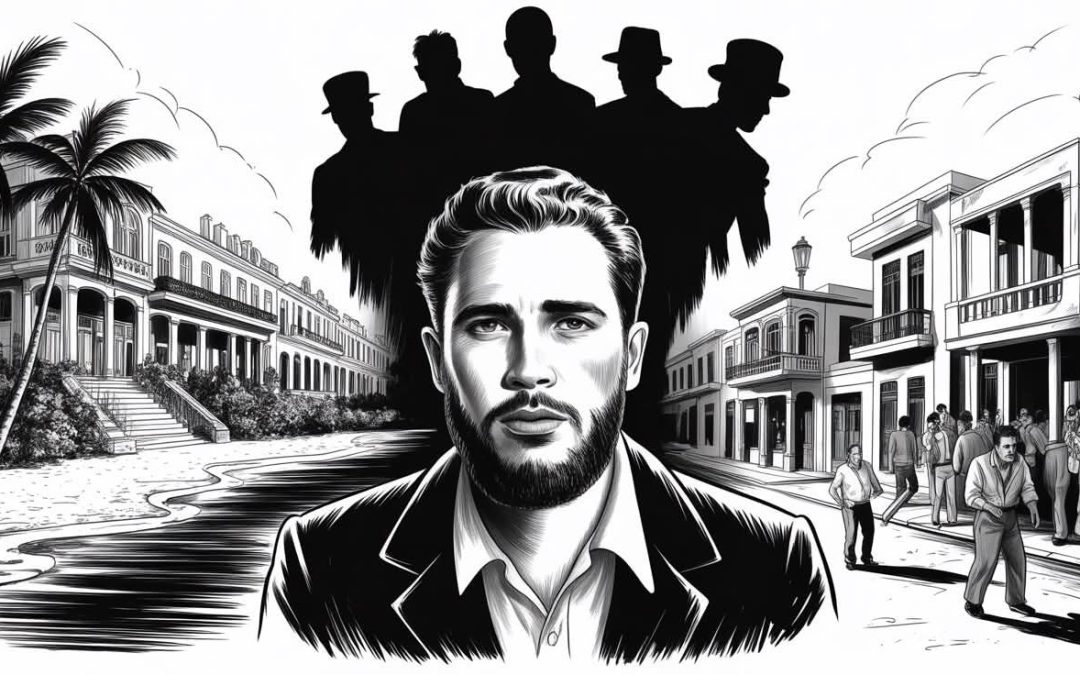
Cold War #291 – The Lawyer for the Poor (Cuban Revolution #16)
In this episode, Cameron and Ray continue the story of Fidel Castro’s early years, charting his transformation from a fiery young activist entangled with street gangs into a determined reformer and aspiring politician. They explore how Castro navigated gang violence in Havana, his involvement with the nonviolent September 30th movement, his bold courtroom defenses, and his law practice dedicated to the poor. The episode also covers his growing disillusionment with Cuba’s political parties, his clashes with President Prío’s corruption, his unlikely meeting with Batista, and his relentless drive to clean up his reputation and pursue political power. Along the way, Cam and Ray weave in colorful anecdotes, wry humor, and comparisons to figures from Rome and Napoleon to highlight the revolutionary forces shaping Castro’s trajectory.
Latest Episode

Cold War #291 – The Lawyer for the Poor (Cuban Revolution #16)
In this episode, Cameron and Ray continue the story of Fidel Castro’s early years, charting his transformation from a fiery young activist entangled with street gangs into a determined reformer and aspiring politician. They explore how Castro navigated gang violence in Havana, his involvement with the nonviolent September 30th movement, his bold courtroom defenses, and his law practice dedicated to the poor. The episode also covers his growing disillusionment with Cuba’s political parties, his clashes with President Prío’s corruption, his unlikely meeting with Batista, and his relentless drive to clean up his reputation and pursue political power. Along the way, Cam and Ray weave in colorful anecdotes, wry humor, and comparisons to figures from Rome and Napoleon to highlight the revolutionary forces shaping Castro’s trajectory.
Recent Episodes
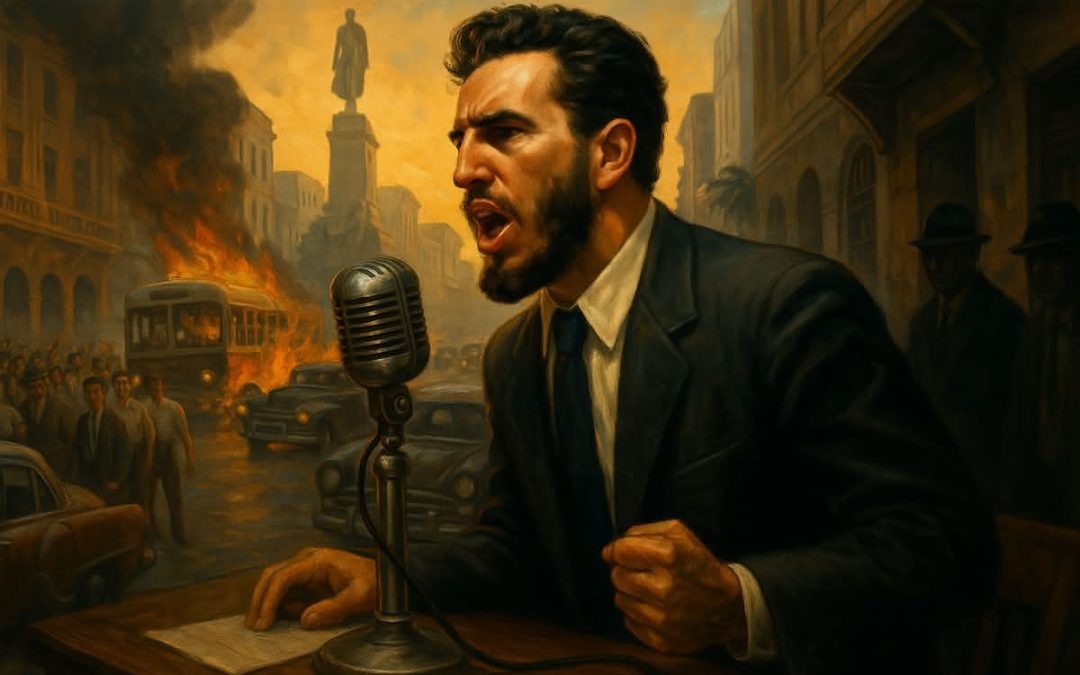
Cold War #290 – The Making Of Fidel (Cuban Revolution #15)
Cameron and Ray pick up Fidel Castro’s story in 1948 as he returns from Colombia in the wake of the Bogotazo riots. We follow Castro through his early 20s as he campaigns for Eduardo Chibás, clashes with Havana police over accusations of corruption, and narrowly escapes being framed for murder. The conversation dives into the student-led bus fare protests—linked to shady U.S. business deals—that propelled Castro into the spotlight. We hear about his whirlwind romance and three-month honeymoon in the United States, his growing fascination with Marxist thought, and his balancing act between rival student gangs and political factions. The episode ends with the murder of his close friend, fellow activist Manolo Fuentes, a turning point that forces Castro to reconsider his alliances and the dangerous reality of Havana’s violent political landscape.
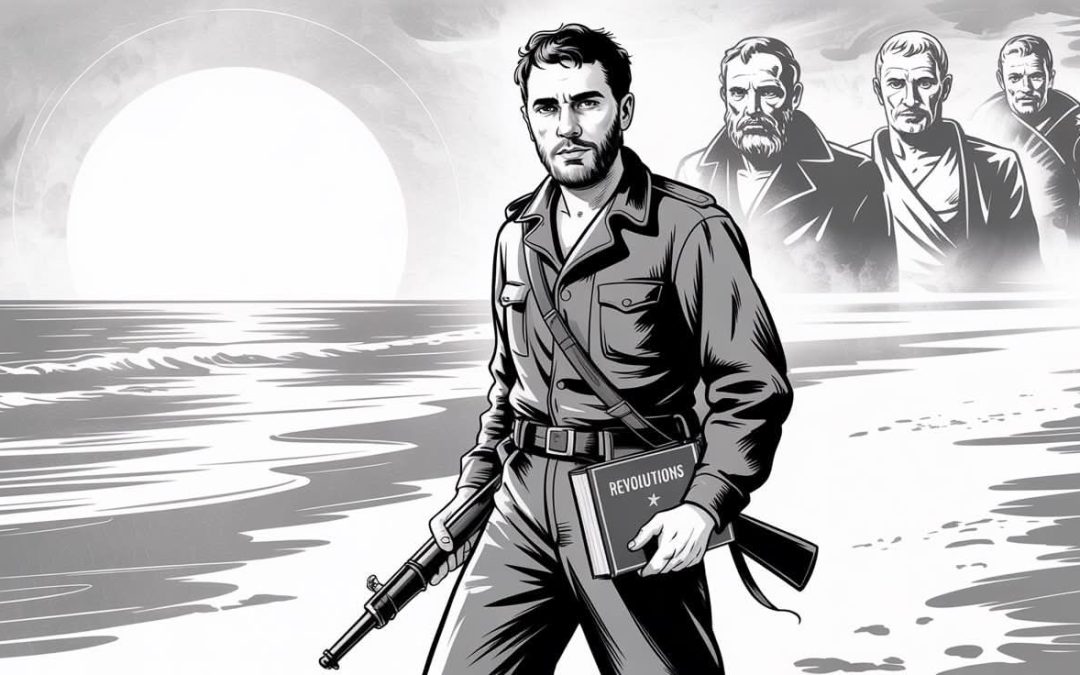
Cold War #289 – The Rise Of Fidel (Cuban Revolution #14)
In this episode, Cam and Ray kick off their deep dive into the life and legend of Fidel Castro. Picking up from the Batista coup of 1952, they trace Fidel’s early years—born illegitimate on his father’s sugar plantation, educated by Jesuits, and shaped by political violence. We follow Fidel through elite boarding schools, law school radicalisation, and his early attempts to overthrow regimes across Latin America. From jumping ship with a machine gun to surviving student death threats, Castro emerges as a man driven by revolutionary ideals, a hunger for justice, and an almost messianic sense of destiny. Along the way, we encounter Perón, Guevara, Trujillo, and Gabriel García Márquez—and we get a glimpse of the revolutionary vanguard that would eventually upend Cuba forever.
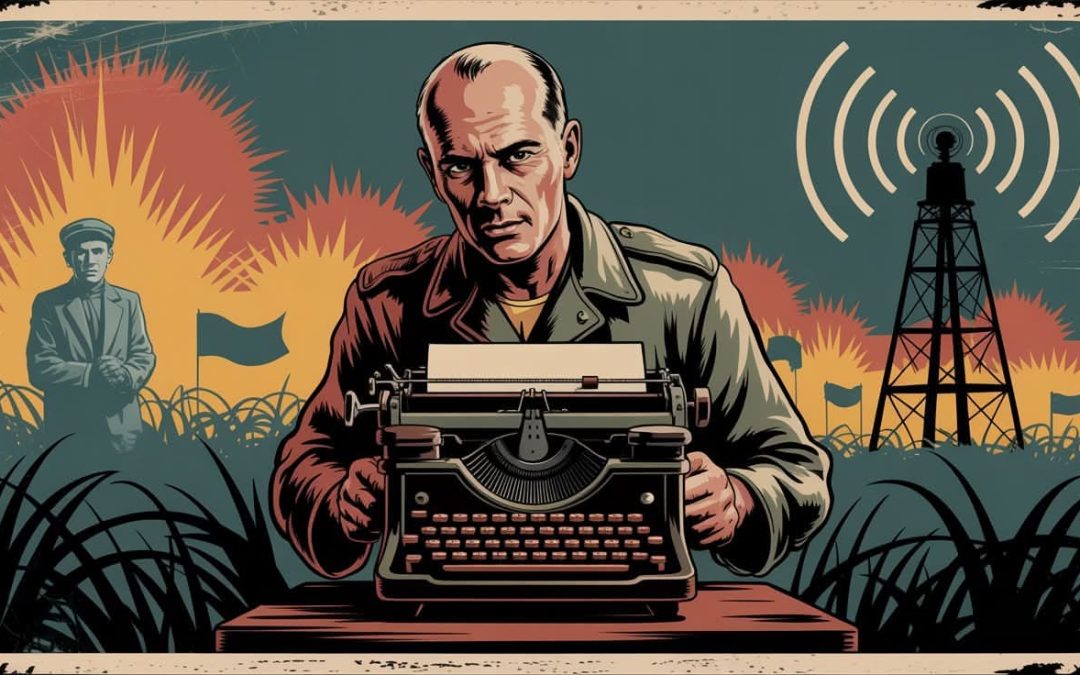
Cold War #288 – Seven Governments, One Puppetmaster (Cuban Revolution #13)
In this raucous and revelatory episode of _The Cold War Podcast_, Cameron and Ray finally reach the man of the hour: Fulgencio Batista. From humble military stenographer to kingmaker of a chaotic Cuba, Batista’s rise is traced through coups, constitutions, and crushing dissent. Cameron performs a blistering freestyle rap tribute to Ray (“Ray Bear Has No Hair”), then the duo dive into Batista’s reign, the boom years of WWII, puppet governments, violent suppression of opposition, and the eerie parallels to authoritarian creep in modern democracies. The episode also explores the cultural fallout of constant violence, Fidel Castro’s formative influences, and the suicide of Eduardo Chibás on live radio—a moment that cemented Castro’s revolutionary zeal. Come for the history, stay for the dick jokes, cos this one’s got everything.
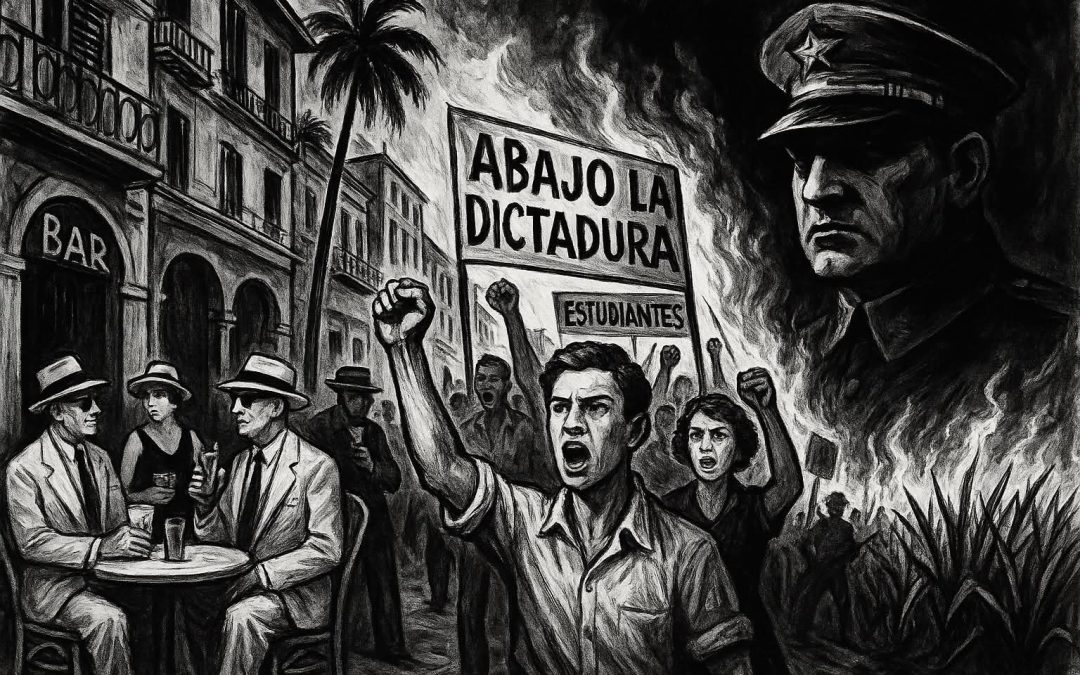
Cold War #287 – The Fall of Macho Man Machado (Cuban Revolution #12)
In this episode of the Cold War podcast, Cam and Ray continue their wild ride through Cuban history, focusing on the rise and fall of Gerardo “Macho Man” Machado, the proto-strongman president who turned Cuba into a playground for rich tourists—and a pressure cooker for everyone else. From political repression and violent union crackdowns to communist organizing and student uprisings, this chapter sets the stage for Cuba’s eventual revolution. Along the way, we meet fascinating figures like Julio Antonio Mella (the OG Castro prototype), discuss the communist roots of Cuban resistance, and learn how America played both arsonist and firefighter in the region. Plus: cigars, lesbians, and martinis. You’re welcome.
Welcome To The Cold War Podcast!
1. There are TWO OF US. This is a conversation, not a lecture.
2. It’s LONG FORM. Which means we will take hundreds of episodes to tell a story. If you want a quick overview, this is not the show for you!
3. It’s NSFW. While we take the history very seriously, we also know that learning is more effective when you’re having fun. Sometimes (okay, quite often) “having fun” for us translates as bad language and dirty jokes. Let’s face it – this history is violent and sexy. This is NOT a child-friendly show, nor is it safe for work.
4. We CHARGE MONEY for the latest episodes. We do this for a living and put a lot of time and effort into making our content. So you can listen to the first couple of years worth of episodes for free, but the more recent episodes (produced this year) require a paid subscription. Feel free to listen to the free ones and then, if you like them, register to listen to the rest.
Learn more about the show and hosts.
TASTE TESTER
Listen to some free episodes below.
CAM & RAY’s COLD WAR PODCAST
Listen Now!
The first couple of hundred episodes of the show are available for free. That’s a taste-tester of a couple of hundred hours. If you listen to those and decide you want to hear more, than please register to listen to all of the premium episodes.
You can check out our free episodes on Apple and Google devices by clicking the links below
(or searching for them in the app of your choice).
Or go here to listen in your browser.
You can also find one of our miniseries (where we focus on a particular topic for multiple episodes).
Awesome
★★★★★ in Apple Podcasts by Kingstonnnnnn from the United Kingdom on September 15, 2022
I clicked on this podcast out of curiosity. I was interested in learning about Israel and fell into a giant hole. I previously listened to The Caesar, Alexander and renaissance podcasts, so, I was familiar with Ray and Cam’s format. However, how these two can make history so fun and exciting Is an art form, I was not even remotely interested in the Cold War but thanks to these two, I will now need to find books about Oppenheimer, Stalin, the atomic bomb and operation Alsos. You guys make me curious and make me question the way I view things. Keep up the good work.
View and share this review
History, mockery and occasional drinking
★★★★★ in Apple Podcasts by kristinsg from Norway on September 30, 2019
These folks actually make history podcasts worth listening to. A great mixture of good historical analysis and phrases like “took a dump on the whole agreement” or having “testicular fortitude”. Love it. And love the fact that they are looking at things from several sides, not the usual “the Soviets were evil and hated freedom, but America won the war and saved the day”.
Amazing
★★★★★ in Apple Podcasts by Renato.uwu from United States of America on October 5, 2019
This is my favorite History podcast. I love the dynamic and structure of the episodes. My favorite episodes so far have been the mini Fidel Castro bio and the Philippines one. They were both incredible and I also really liked the episodes on the Cambridge 5. The whole show has been very eye opening and I really appreciate the comedy as well as the work Cam puts into the show and the ocasional looks into the future provided by Ray. My one small critique is that I think they’ve taken to long to outline WWII (which is not my favorite thing to study) but I’ve managed to stick with it and am very happy I did because I’ve learned a lot that was never mentioned in school. Even so I can’t wait till I get to the end of WWII hopefully by the end of the week. Thank you very much Cam and Ray for being my teachers and for the free student subscription it means a lot 🙂 <3 !







